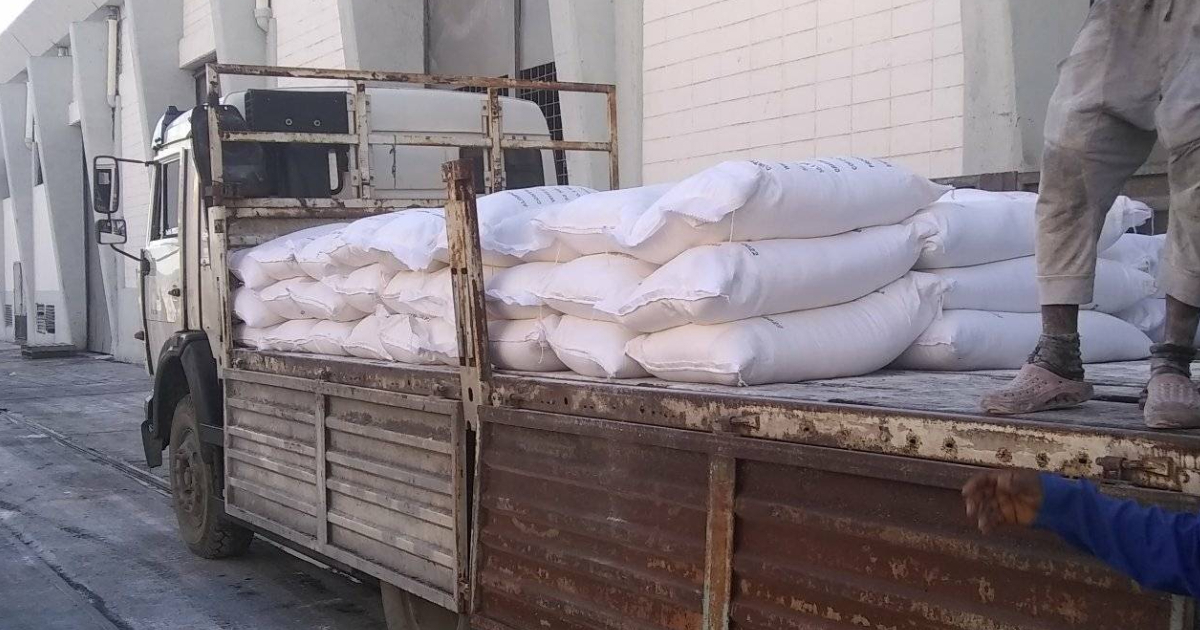A group of over 25 men has been accused by a Cuban citizen of stealing goods transported by a private worker from Santiago de Cuba for a supposed purchase in the town of La Flor de Báguano, located in Holguín province. The complaint sent to our newsroom details that the incident occurred on Tuesday, May 21.
According to the account, "the criminals made the arrangement with the self-employed worker (TCP) using Messenger and WhatsApp; they also sent their identification from the National Tax Administration Organization (ONAT), self-employment papers, and ID card to process the transit invoice." All the documents were reportedly fake.
The purchase was to be divided into two parts, one payment upon arrival in La Flor de Báguano and another in the city of Holguín, with payments expected at both drop-off points, the text claims.
The report also states that there was consistent communication between the seller and buyer throughout the journey. "They continued making calls from two numbers, the supposed buyer and his warehouse manager (who made the initial contact), who was to receive the goods in Flores, make the payment, and serve as a guarantor for the second delivery," it describes.
Upon arriving at the first location, in front of the local bakery, they were taken to the house right across the street, where more than 25 people were present, all men with gloves and backpacks, ready to unload the goods. The first payment was shown at this location. The money was "in a backpack with well-organized bundles of cash, where only 1,000 and 500 CUP bills were visible, but underneath were 10 and 5 CUP bills, totaling the amount for 2 sacks of flour," it adds.
After that, they headed to the city of Holguín to collect the remaining money and unload the rest of the goods. The warehouse manager accompanied them as a guarantor. However, "during a stop, the warehouse manager got off the truck at full speed, fleeing on a waiting motorcycle and leaving the backpack with the money behind," the story narrates.
Upon questioning the owner of the house where the first transaction took place, she claimed not to know the alleged thieves and mentioned that "minutes after they left, a truck arrived and took all the goods and some of the laborers, and then another vehicle took the rest."
The victims filed a police report, and during the reconstruction of events, it was discovered that "a red scooter had been making arrangements early on with the house and vehicles in the community to carry out the scam."
It seems that "the truck that transported the stolen goods, the scooter, and the vehicle that took the rest of the laborers had been hidden in the area from early on," the report notes.
They highlight that "this is the third such crime committed in the last three weeks using the same modus operandi in this area."
Recently, a police operation in the city of Santa Clara, Villa Clara province, responded to reports of two major scams. One involved food products like condensed milk and imported cookies (valued at over two million pesos), and another involved 22 crates of Cristal beer (valued at over 15 million pesos).
On that occasion, the police took the opportunity to reiterate the importance of verifying the identity of buyers and sellers contacted through social media and ensuring that transaction locations have the necessary conditions to avoid surprises.
Frequently Asked Questions about Flour Scam in Holguín
This section addresses some common questions regarding the recent flour scam in Holguín, providing important details and insights for our readers.
How did the scammers contact the private worker?
The scammers contacted the private worker using Messenger and WhatsApp, and they provided fake identification documents to facilitate the transaction.
What was the modus operandi of the scammers?
The scam involved splitting the payment into two parts, with one payment at La Flor de Báguano and another in Holguín. The scammers maintained communication throughout the journey and used fake documents to appear legitimate.
What advice did the police give to prevent such scams?
The police advised verifying the identity of buyers and sellers contacted through social media and ensuring that transaction locations have the necessary conditions to prevent scams.
